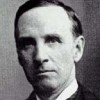An aphorism never coincides with the truth: it is either a half-truth or one-and-a-half truths.
Karl Kraus (1874-1936) Austrian writer, journalist, aphorist
Half-Truths and One-and-a-Half Truths [tr. Zohn (1976)]
(Source)
Quotations about:
saying
Note not all quotations have been tagged, so Search may find additional quotes on this topic.
What are the proper proportions of a maxim? A minimum of sound to a maximum of sense.
Mark Twain (1835-1910) American writer [pseud. of Samuel Clemens]
More Tramps Abroad, Epigraph, ch. 23 (1897)
(Source)
The aphorism is a personal observation inflated into a universal truth, a private posing as a general. A proverb is anonymous human history compressed to the size of a seed.
Stefan Kanfer (1933-2018) American writer, editor, journalist
“Proverbs or Aphorisms,” Time (11 Jun 1983)
(Source)
The essence of aphorism is the compression of a mass of thought and observation into a single saying. It is the very opposite of dissertation and declamation; its distinction is not so much ingenuity, as good sense brought to a point.
John Morley (1838-1923) English statesman, journalist, writer [John, Viscount Morley]
“Aphorisms,” speech, Edinburgh (1887)
(Source)
Almost every wise saying has an opposite one, no less wise, to balance it.
George Santayana (1863-1952) Spanish-American poet and philosopher [Jorge Agustín Nicolás Ruíz de Santayana y Borrás]
The Life of Reason or The Phases of Human Progress, Vol. 5 “Reason in Science,” ch. 8 “Prerational Morality” (1905)
(Source)
Every man who has seen the world knows that nothing is so useless as a general maxim. If it be very moral and very true, it may serve for copy to a charity-boy. If, like those of Rochefoucauld, it be sparkling and whimsical, it may make an excellent motto for an essay. Few, indeed, of the many wise apophthegms which have been uttered from the time of the Seven Sages of Greece to that of Poor Richard, have prevented a single foolish action.
Thomas Babington Macaulay (1800-1859) English writer and politician
“Machiavelli,” Edinburgh Review (Mar 1827)
(Source)
Review of Œvres complètes de Machiavel, J. V. Perier ed. (1825)
But, perhaps, the excellence of aphorisms consists not so much in the expression of some rare and abstruse sentiment, as in the comprehension of some obvious and useful truths in a few words. We frequently fall into error and folly, not because the true principles of actions are not not known, but because, for a time, they are not remembered; and he may, therefore, be justly numbered among the benefactors of mankind, who contracts the great rules of life into short sentences, that may be easily impressed on the memory, and taught by frequent recollection to recur habitually to the mind.
Samuel Johnson (1709-1784) English writer, lexicographer, critic
The Rambler, #175 (19 Nov 1751)
(Source)







